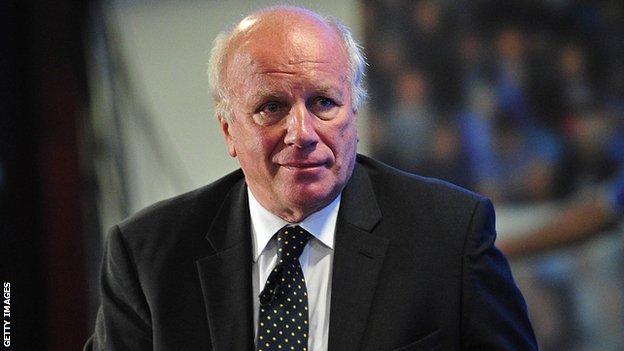FA sends out proposals to reduce the number of non-EU players
- Published
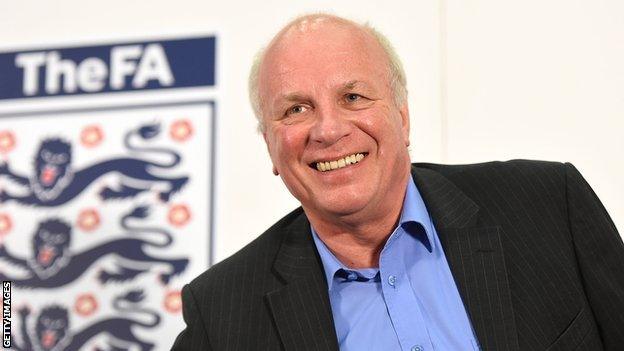
FA chairman Greg Dyke headed a commission which proposed a four-point plan to boost English football
The Football Association has sent out its first draft of proposals to reduce the number of non-EU players within English football by up to 50%.
The FA's England Commission earlier this year called for wholesale reform in the belief that too many "mediocre" players were being bought by clubs.
Proposed rule changes have been sent to the Premier League, the Football League and the players' and managers' unions.
The FA hopes a new system can be in place for the 2015-16 season.
The Welsh, Scottish and Northern Irish Football Associations are also in discussion with their English counterparts.
The FA hopes to send an agreed raft of reformed measures to government ministers before the end of the year.
Up until the end of last season, 122 non-EU players had entered English football since 2009.
The current rules, called the Governing Body Endorsement , external(GBE) process, were introduced by the Home Office in 2008 to allow sport governing bodies to manage visa applications of elite players from non-EU countries.
The Football Association's first draft of proposals |
|---|
Restricting GBE visa applications to Premier League clubs only. Currently Football League clubs can also apply and, in the past four years, 23 applications from Football League clubs have been successful. |
Preventing players brought to Britain through the GBE visa system from being loaned out to other clubs. |
Reducing the list of countries from which players can apply for GBE visas based on international playing record, from the current 70 top Fifa-ranked countries to the top 50. |
Easing - from 75% to 30% - the percentage of competitive international matches that players from countries with Fifa ranking in the top 30 must have played in the past two years. |
Introducing a transfer fee exemption to deliver GBE for elite players from any country, irrespective of Fifa ranking, if the transfer fee exceeds a minimum indexed figure, initially proposed to be £10m or £15m. |
Scaling back the appeals system so that clubs may only appeal on the basis of incorrect process. In the past appeal tribunals have been required to make subjective judgments on ability, which, it has been claimed, has resulted in nearly 80% of all appeals being successful after failing to meet the initial criteria. |
The criteria states that only sportspersons "who are internationally established at the highest level whose employment will make a significant contribution to the development of their sport at the highest level in the UK" should be granted a visa.
However, the Commission believes the number of foreigners in the domestic game are blocking pathways for younger English footballers to develop.
The FA is attempting to try and increase the pool of talent, with the aim that England will win the 2022 World Cup in Qatar.
Speaking in May, at the launch of the first part of the England Commission, established to examine the national team's historic failings, FA chairman Greg Dyke said: "122 non-EU players have entered England under the GBE scheme since 2009.
"Nearly 50% didn't meet the current criteria and came through an appeal process in which 79% of appellants have been successful.
"Remarkably, only 58% given work visas to play in the Premier League play any football in that league in the second season after their arrival.
"Our proposal to tighten the entry and appeals criteria for non-EU player immigration will create a necessary constraint that will encourage more considered and valuable player acquisitions from outside the EU."
- Published8 May 2014
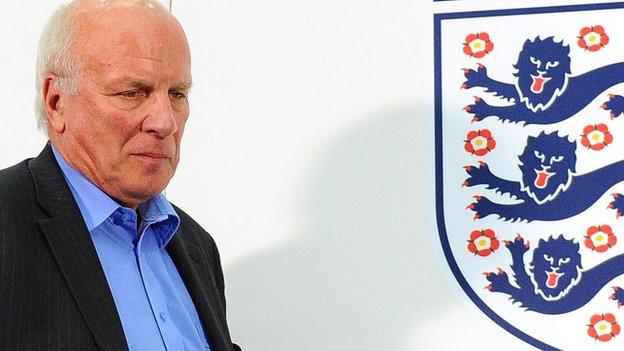
- Published8 May 2014
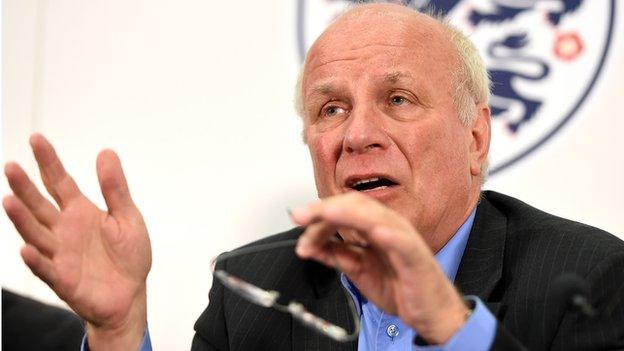
- Published8 May 2014
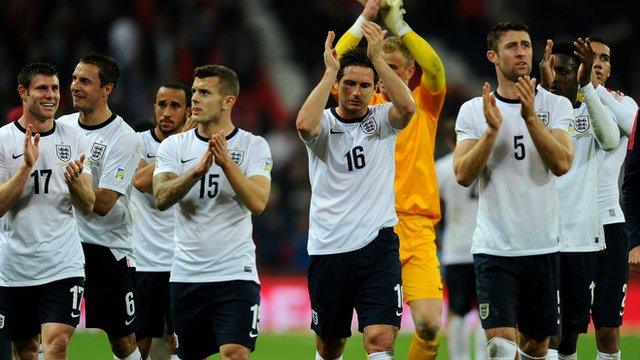
- Published8 May 2014
- Published6 May 2014
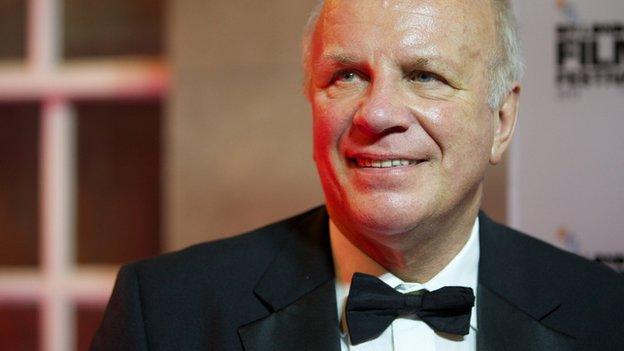
- Published19 October 2013
